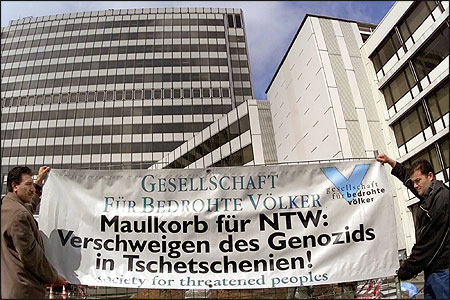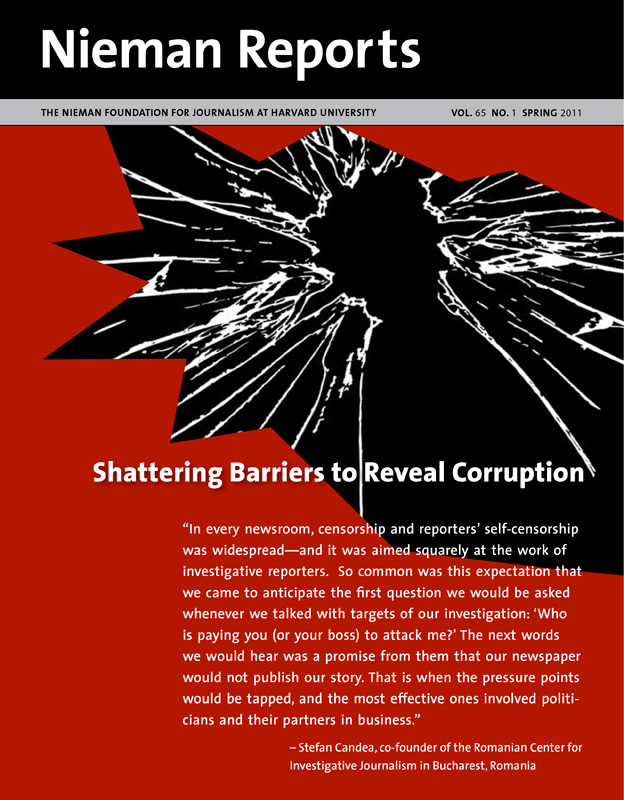
In 2001 free speech advocates demonstrated in Germany against Gazprom, a major Russian energy concern, when it took over a Russian TV company. Gazprom is partly owned by a German firm. Photo by Edgar R. Schoepal/The Associated Press.
RELATED ARTICLE
“Russian Journalists Need Help in Exposing Corruption”
- Alexei Navalny and Maxim TrudolyubovCompare the cost of gas pipelines with very similar technical specifications built in places with a similar climate and geography, as reported by East European Gas Analysis. One is the Gryazovets-Vyborg pipeline in Russia; the other is the OPAL pipeline in Germany. The pipelines feed and take gas out of the Nord Stream system, respectively.
With the Russian pipeline, one kilometer of pipe cost about $7.3 million¹ without compressor stations. ¹The price tag was calculated with rubles converted at the average exchange rate in 2006 when this section of pipeline was built.In comparison, one kilometer of the OPAL pipeline, built in 2009-2010, cost $2.9 million including compressor stations.
The price of steel pipe and the cost of labor in 2006 were substantially lower than when the OPAL pipeline was constructed in 2009-2010, says Mikhail Korchemkin, head of East European Gas Analysis, so the cost ratio approaches three to one.
"As sure as I am sitting here one kilometer of a pipeline cannot possibly cost more than [$2.75 million] in Russia," said Gennady Shmal, president of the RELATED ARTICLE
“Kickbacks: The Margin Is Growing”
- Alexei Navalny and Maxim TrudolyubovUnion of Oil and Gas Industrialists of Russia, in an interview for the business television channel RBC. Shmal should know since he has overseen the construction of thousands of kilometers of pipelines in Soviet and post-Soviet Russia. Yet the foreign shareholders of Gazprom don't appear willing to notice such discrepancies.
Alexei Navalny is a Russian lawyer, popular blogger, and a prominent anti-corruption campaigner. Maxim Trudolyubov, a 2011 Nieman Fellow, is editorial page editor of Vedomosti, a Russian business daily.



